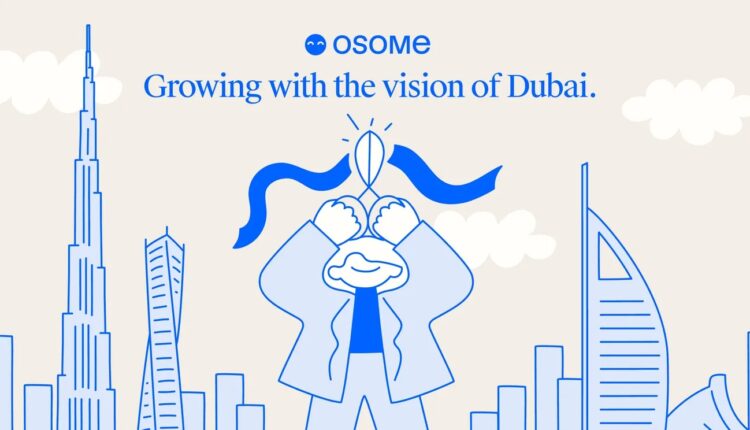Singapore-based AI accounting startup Osome has officially commenced operations in Dubai, establishing its first presence in the United Arab Emirates market. The company, which currently serves over 30,000 businesses across Singapore, Hong Kong, and the United Kingdom, has chosen Dubai as its gateway to the Middle East region.
This strategic expansion positions Osome to serve Dubai’s thriving business ecosystem, which hosts more than one million small and medium enterprises. The timing coincides with increasing digitization demands and evolving regulatory requirements that are reshaping how businesses manage their financial operations in the emirate.
Strategic Market Entry Amid Rising Demand
Osome’s AI accounting platform offers automated bookkeeping, tax compliance, and business management services specifically designed for startups and growing companies. The 2017-founded company has built its reputation on reducing manual accounting tasks through artificial intelligence and cloud-based solutions.
Dubai’s business environment presents significant opportunities for automated financial services. The emirate’s pro-business policies, foreign ownership reforms, and influx of international entrepreneurs have created a dynamic marketplace where efficiency tools are increasingly valued. Local SMEs face mounting pressure to maintain accurate financial records while managing rapid growth and complex regulatory requirements.
The upcoming mandatory e-invoicing implementation in 2026 adds another layer of urgency. UAE businesses will need to transition to electronic invoicing systems approved by government authorities, creating demand for integrated accounting solutions that can handle these new requirements seamlessly.
Regulatory Framework and Compliance Considerations
Questions surrounding Osome’s regulatory positioning in the UAE remain unresolved. The company has not disclosed whether it operates under mainland licensing or within a designated free zone such as Dubai Internet City or the Dubai International Financial Centre. Each jurisdiction maintains distinct regulatory frameworks and service limitations.
UAE business licensing requirements vary significantly based on operational scope. Professional service providers typically require specific licenses to offer accounting and tax advisory services. Additionally, companies providing tax representation must obtain Federal Tax Authority registration and appropriate accreditation.
The absence of published licensing details raises questions about the full range of services Osome can legally provide in the UAE market. However, this situation reflects common patterns where international fintech companies establish operations while navigating evolving regulatory landscapes.
Building Strategic Partnerships Through Industry Events
Osome plans to participate in Expand North Star at GITEX 2025, positioning itself within the region’s premier technology and startup conference. This participation represents a key component of the company’s partnership development strategy in the Middle East.
The company seeks to establish relationships with venture capital firms, fintech platforms, and business accelerators throughout the region. These partnerships mirror successful collaboration models that supported Osome’s growth in Asian and European markets.
Dubai’s position as a regional financial hub provides access to investors and technology partners across the Gulf Cooperation Council countries. The emirate’s established fintech ecosystem includes numerous international companies that have successfully scaled their operations from this strategic location.
The AI accounting Dubai market continues expanding as businesses recognize the value of automated financial management. Osome’s entry reflects broader trends toward digitization in the region’s business services sector, where traditional manual processes are giving way to intelligent automation solutions.


